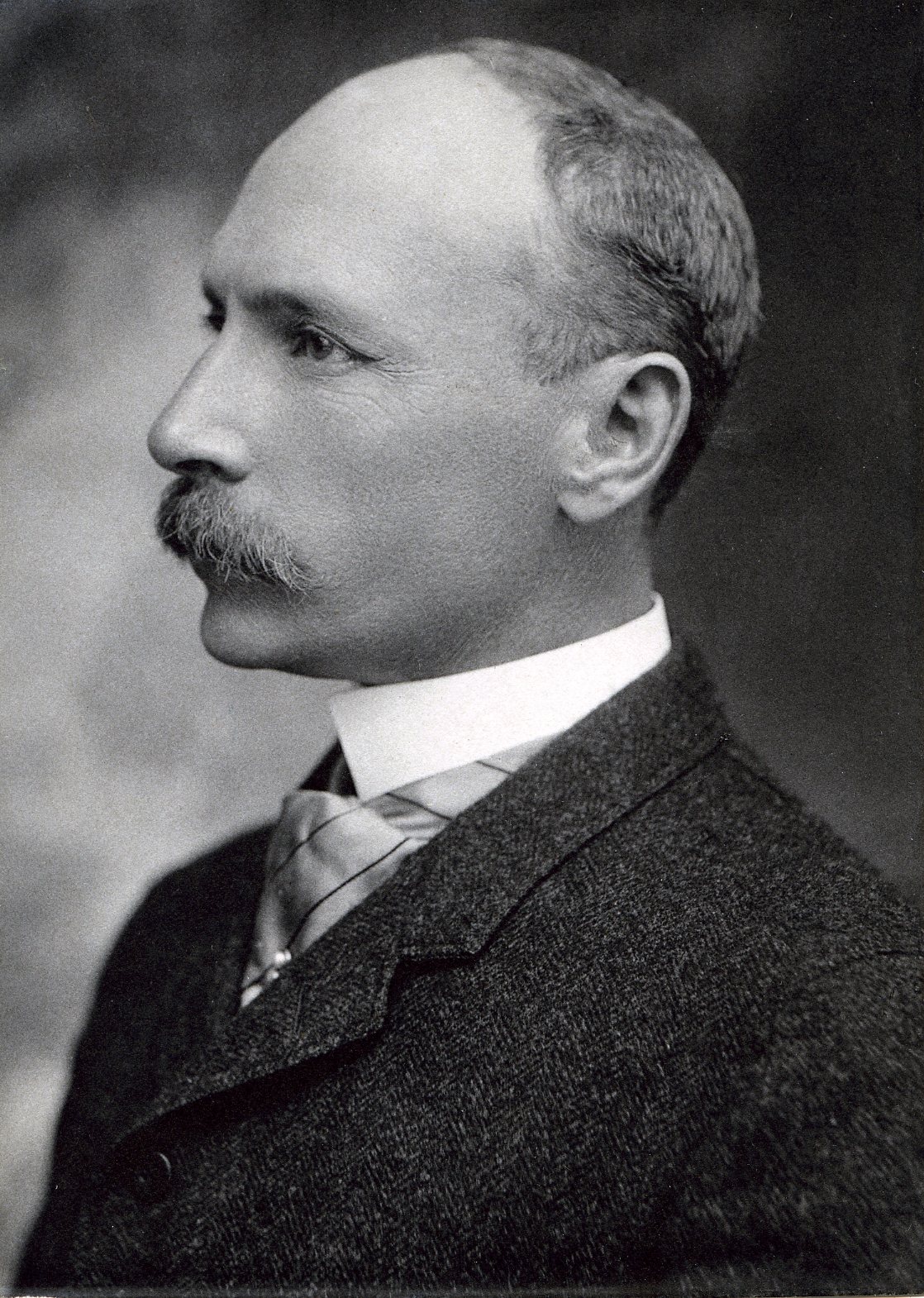Lawyer
Centurion, 1903–1924
Born 26 July 1860 in Philadelphia, Pennsylvania
Died 25 November 1924 in New York (Manhattan), New York
Buried Woodlawn Cemetery , Bronx, New York
, Bronx, New York
Proposed by Edward B. Whitney and Henry Loomis Nelson
Elected 6 June 1903 at age forty-two
Proposer of:
Seconder of:
Century Memorial
Sometimes, when conditions in New York City politics seem so desperate as to shut every avenue of hope for delivering the city from control of the baser elements, it is possible to draw fresh courage by recalling the civic career of certain patriotic New Yorkers of the past, who spent their lifetime in an unselfish, unremitting and repeatedly successful effort to redeem the city. The circumstances of the moment seem to lend force to such reminiscence. If New York has now a government, not of blackmailers as in 1901 or of robbers as in 1870 but of blockheads and blackguards, the state of affairs is none the less a public disgrace and public menace, and what is happening before our eyes today shows it to be as vulnerable, if the right-thinking citizens of New York awake to their responsibility, as it was under Van Wyck or Tweed. In the past, when the hour had come the man came too.
If Robert Grier Monroe had been willing at any time in his public activities to compromise with Tammany, he might have had a conspicuous political career. He was admittedly fitted for public office; perceptive, discriminating, cool, firm and a clear-headed judge of men. Furthermore, he was by inclination and inheritance a partisan Democrat, intensely interested in what he considered sound Democratic principles and a believer in party organization. He was an active advocate of free trade, or tariff reform as it then used to be called; of sound money, of Civil service reform, of tenement house reform, of sound and economical public administration. He sought to effect political organization in aid of all these things.
But he would make no terms with Tammany Hall, to which he was consistently and unsparingly an opponent throughout his life. In the late eighties there were two Democratic organizations in New York, Tammany Hall and the County Democracy. Monroe joined the County Democracy. In 1888, with Edward B. Whitney, he entered upon a country-wide movement to organize the National Association of Democratic Clubs, designed to help in tying up the party organization to the principles represented by Grover Cleveland. The Reform Club in New York was organized about this time, and in that club also Monroe was one of the leaders.
In 1892 the Reform Club organization, under the leadership of Monroe, William R. Grace, Ellery Anderson and Charles S. Fairchild, organized the so-called “Anti-Snapper movement” in opposition to David B. Hill’s aspirations for the Presidency and in favor of Grover Cleveland, and no one was more effective than he in keeping the various elements united and ensuring Hill’s defeat, notwithstanding the Tammany following which that agile demagogue attracted. In the same club’s work for tariff reform and a sound currency, Monroe co-operated actively with such colleagues of the Century as Fairchild, Wheeler and Baldwin. After Monroe and Grace had organized an anti-Tammany Democratic party in New York, which absorbed what was worth saving of the old County Democracy, this Democratic organization fused with the Republicans in 1894 and brought about the election of Mayor Strong. We then got a street-cleaning department and the beginnings of Rapid Transit. Again, in 1896, Monroe was an active leader here in organizing the Democratic vote against Bryan. Four years later he was appointed its counsel by the so-called Committee of Fourteen, of which William H. Baldwin was Chairman, and with William Travers Jerome and the present Treasurer of the Century Club [Henry deForest Baldwin] he conducted a campaign against the Police Department’s alliance with crime and vice which aroused a public interest that culminated in the two extraordinary municipal campaigns that swept Jerome into the district attorneyship and then triumphantly re-elected him, in the face of the desperate opposition of all the evil influences entrenched in city politics.
This activity and this distinguished civic service were rendered by Monroe when he was under the exactions of a busy and successful law practice. He found time for both, and he gave the best of himself to the interests of his city. This is the kind of character and service on which we must reckon for our political deliverance today.
Alexander Dana Noyes
1925 Century Association Yearbook

